Boostnote is a new Open Source note-taking application focused on programmers. It is available for Linux, Windows and MacOS. It is built on electron and is run offline.
Note taking app for programmers
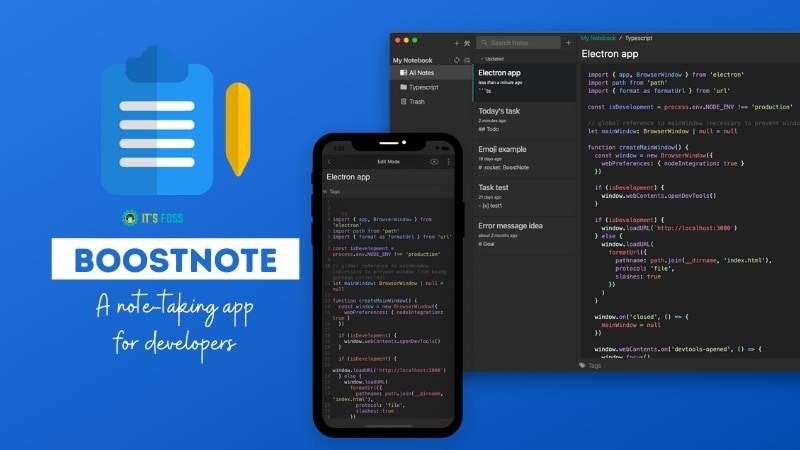
As programmers, we usually take down lots of notes that include interesting code snippets, frequently used commands, some scribbles about the project or bug you are working on. And it all becomes more useful if the entire thing is organized in pages. This way, you know where to find the piece of information you are looking for.
At work, I have seen most of my colleagues using Microsoft’s OneNote for this purpose. It lets you organize notes in form of pages and chapters.
Boostnote is kind of Microsoft OneNote alternative for Linux. However, it doesn’t do everything the same way as OneNote does. We’ll see it in action but before that let me highlight the main features of Boostnote.
Boostnote features
Boostnote is built using Electron. It is under active development and it seems like they will have more features in the coming days. As of now, Boostnote boasts of the following:
- Notes can be taken as Markdown or in code snippet format
- Syntax highlight
- Notes can be tagged
- Search functionality
- Notes can be grouped together in folders
- Hotkey support
- Dark and light UI themes
- Plenty of themes for the editor
- Cross-platform, available for Linux, Windows, macOS, Android and iOS
- No synchronization to cloud
- Notes can be exported to .txt or .md (Markdown).
Installing Boostnote on Ubuntu and other Linux distributions
For Linux, Boostnote provides DEB packages for Debian/Ubuntu based Linux distributions such as Linux Mint, elementary OS etc. Do note that it is available for 64 bit systems only. You can download the installer file from the link below:
For Arch Linux users, Boostnote is available from the AUR.
Using Boostnote
At first run, Boostnote asks you to define the location of “storage”. Storage is nothing but a directory where all your future notes will be saved. You can have multiple storages allowing you to save different kinds of files in different locations.
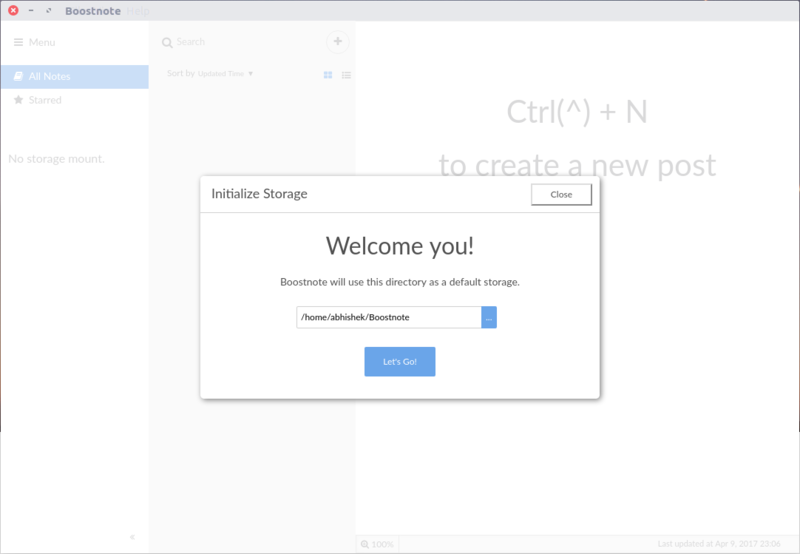
You can use Ctrl+N to create a new note. You can also use the GUI option for the same. When you try creating a new note, it will ask you to select the type of note:
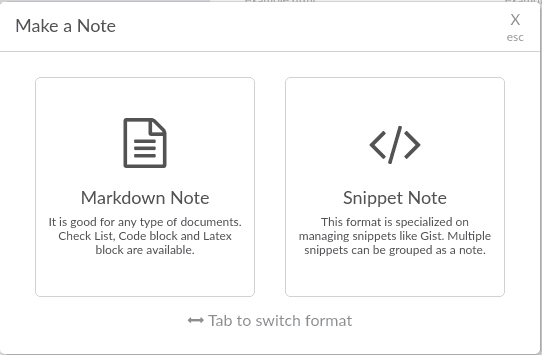
If you are familiar with markdown, you can use the syntax to create rich text like this:
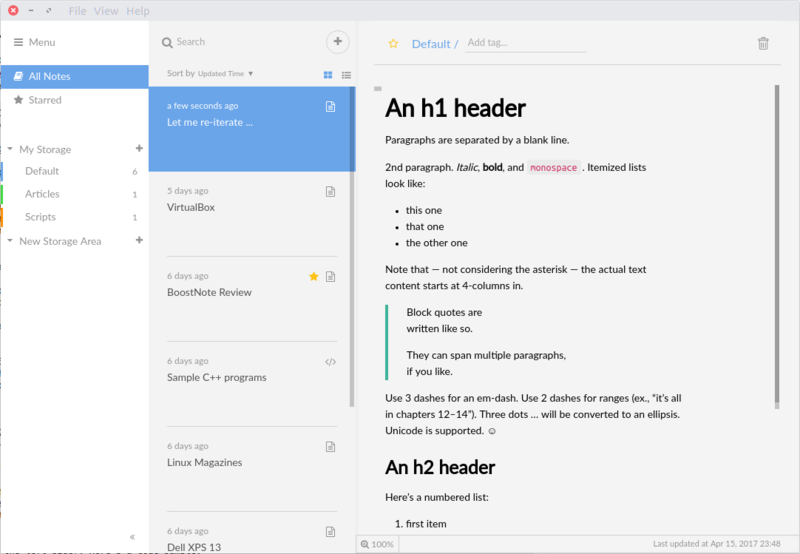
Otherwise, you can also create notes in plain text. You can create folders to group your notes together. You can also mark notes as favorites to quickly access them from the left side pane.
For the snippet, you need to save the file with an appropriate extension in order to get syntax highlighting.
You can actually save multiple code snippet files in one Snippet file. In the example below, I have one Snippet note called ‘Sample C++ programs’ that has two C++ programs in it.
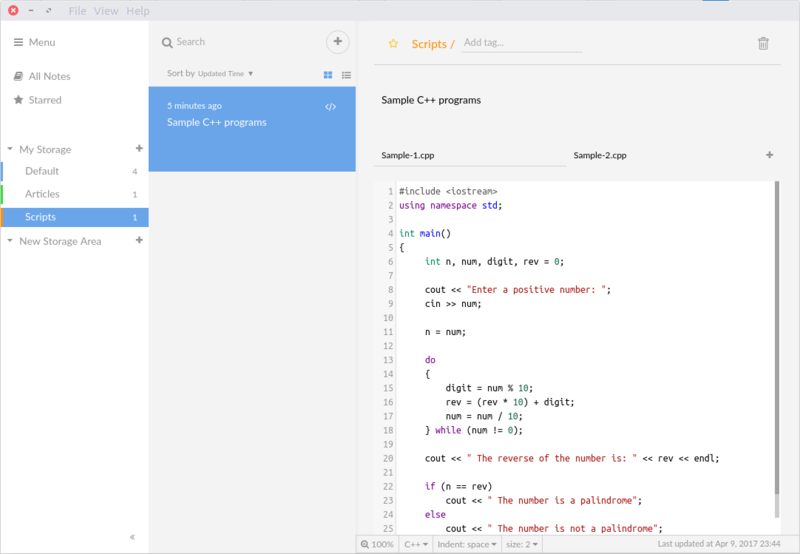
If you do not like the default UI and the editor theme, you can change it from the settings. You can also change the fonts type, fonts size. Settings also allow you to assign custom shortcuts.
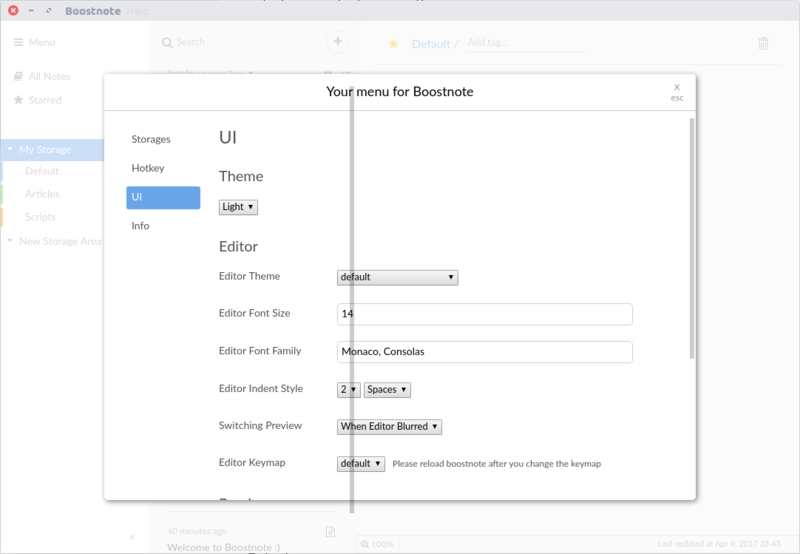
Remember that the by default the notes are saved in Boostnote’s own file type. You cannot copy the files from the storage directory directly. You can use the export feature to save your Boostnotes in normal text format.
One thing that I didn’t like was that it doesn’t support drag and drop feature. If you have to move a note to another directory, you’ll have click on the folder name on the top. It’s not a big deal, but I would have preferred a simple drag and drop for changing the folders:
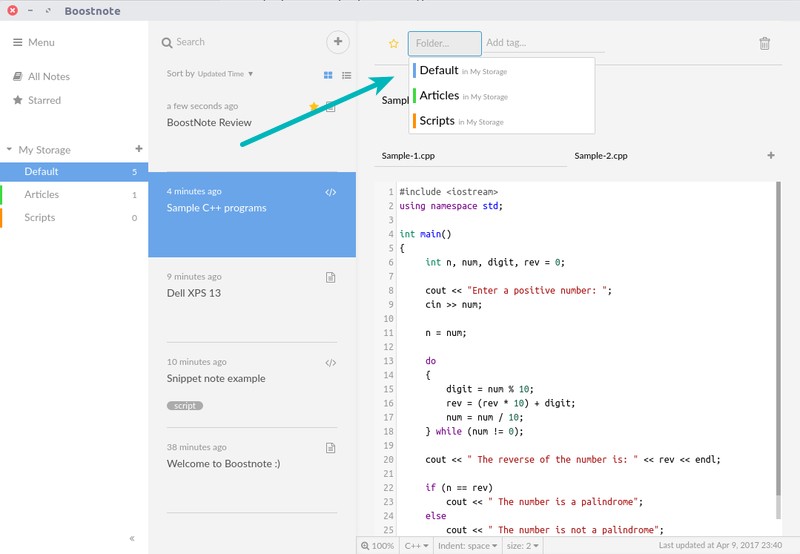
Unlike OneNote, Boostnote doesn’t support images. So you cannot save screenshots as part of your note. This is one feature I would love to see in Boostnote in future.
Verdict
Boostnote is a novel concept. Most note taking app doesn’t focus solely on programmers so Boostnote is trying to carve a niche for itself here.
It is not resource-heavy and it fulfills the promise of quickly jotting down notes and code snippets and lets you organize them in a better way. I miss the option of synchronization but I believe it can be achieved by creating a storage area inside the Dropbox folder.
Altogether, Boostnote is a nice open source software that might not be suitable for everyone but programmers might find it handy.
Try your hands on Boostnote and see if it fits your need. Don’t forget to share your experience with it in the comment section below.

